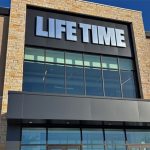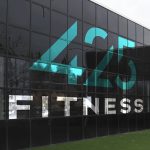At the beginning of its quarterly conference call with analysts, Genesco chairman and CEO Hal Pennington provided an overview of the details of the settlement with The Finish Line and UBS. While the settlement calls for GCO to receive a cash payment of $175 million and a 12% equity stake in The Finish Line, Pennington said GCO would only net about $95 million to $100 million in cash in the transaction because the entire package was a taxable transaction.
Mr. Pennington discussed the reasoning behind the settlement and why they thought it was the best available alternative for GCO. First, he said that they believed that continued litigation was not sufficiently likely to yield a better outcome to justify the delay and risk associated with it. While he said they had won a “clear victory” in Tennessee Chancery Court in December and FINL was ordered to complete the acquisition in accordance with the merger agreement, they didn't have the cash to acquire Genesco. He went on to say “their ability and frankly their willingness to hold UBS to its commitment was increasingly open to question.”
“While we had good arguments that the merged entity would have been solvent, both Finish Line and UBS were in a position to argue the opposite to a judge who was showing some signs of skepticism about the question,” said Pennington discussing the New York suit brought by UBS.
“If there had been an insolvency finding or UBS had otherwise succeeded in avoiding its commitment, we would have been left to pursue Finish Line for damages,” he continued. “They were prepared to argue that we could only recover out-of-pocket losses from their breach, not the merger premium.”
Pennington said they believed FINL might file for Chapter 11 bankruptcy rather than return to Tennessee for a damages trial. “Ultimately, recovering damages from Finish Line in excess of this settlement seemed to us at best an uncertain possibility,” he said. “It would have required months or even years of appeals with all the expense and distraction that litigation brings.”
He also said that they did not believe that a re-priced transaction was a viable alternative. “We had the clear sense that Finish Line's management had reached the point that they did not want a transaction.”
He went on to say that they had no assurance that FINL or UBS would not “once again be subject to buyers or lenders' remorse before the new deal could close” and might end up in the same situation again.
Pennington said the settlement has at least two obvious benefits. The first was that it puts a long episode of distraction behind them and the other benefit of the settlement is that it gives GCO some unexpected cash that allows them to “do more than talk about long-term value.”












